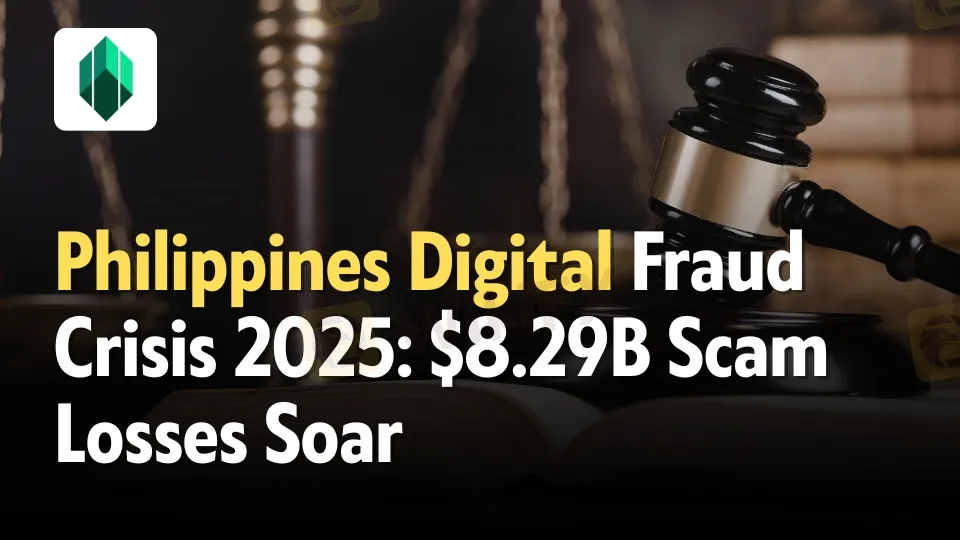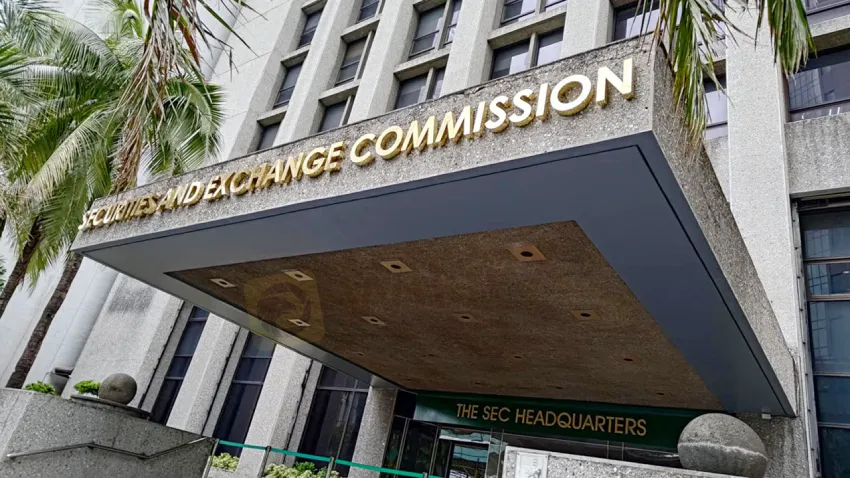PU Prime Launches “The Grind” to Empower Traders
Discover PU Prime’s new campaign, “The Grind,” and learn how trading discipline builds long-term success. Watch and start your trading journey today!
简体中文
繁體中文
English
Pусский
日本語
ภาษาไทย
Tiếng Việt
Bahasa Indonesia
Español
हिन्दी
Filippiiniläinen
Français
Deutsch
Português
Türkçe
한국어
العربية
Abstract:The Philippines ranks 2nd globally in digital fraud with $8.29B annual losses. Government bans POGO, enacts laws, and fights rising scam calls in 2025.

The Philippines is facing a rapidly escalating digital fraud crisis that is impacting millions of Filipinos and costing the economy billions of dollars. Recent data shows the country ranks second in the world for the highest rate of suspected digital fraud, with 13.4% of all digital transactions flagged as potentially fraudulent in 2024. This figure is more than double the global average of 5.4%, far exceeding many other nations. Alarmingly, nearly three-quarters of Filipinos—about 74%—have been targeted by scammers within just the last three months, revealing just how pervasive the problem has become across the country.
The financial toll is staggering. Estimated annual losses hit $8.29 billion (₱480 billion), equal to roughly 1.9% of the national GDP. On an individual level, victims typically lose around ₱44,700 ($768), an amount often equivalent to over two months wages for many families. Those most affected reside mostly in urban centers like Manila and Makati, with vulnerable groups including Gen Z, millennials, overseas Filipino workers (OFWs), senior citizens, and small business owners. The surge in fraud attempts is dramatic, having increased more than 4,500% from 2022 to 2023, highlighting the urgent need for effective countermeasures.

One notable trend has been the explosive growth of scam calls. In the first quarter of 2025, scam calls shot up by 74%, skyrocketing from roughly 108,000 calls to nearly 352,000 calls within a year. These calls are dominated by loan availment scams, which account for 55% of all phone-based fraud, offering fake pre-approved loans with promises of low interest rates while harvesting personal information. Other common scams involve VIP rewards, debt collection, transaction verification, job offers, and product deliveries. Fraudsters have gotten more sophisticated, using AI-generated voice cloning to mimic real bank representatives and sophisticated spoofing methods that make their calls appear legitimate. While text message scams have decreased by 68% due to government crackdowns, scammers have shifted focus toward voice calls and social media platforms, making detection more difficult.
The Philippine government has responded with an aggressive, multi-layered approach aimed at stemming the tide of digital fraud. A landmark piece of legislation, the Anti-Financial Account Scamming Act (AFASA), has criminalized money muling and imposed stricter penalties on scammers and their enablers. Furthermore, following massive evidence that Philippine Offshore Gaming Operators (POGOs) were acting as fronts for fraud and human trafficking, President Marcos signed an executive order in late 2024 to immediately ban all POGO operations nationwide. This ban resulted in high-profile raids and hundreds of arrests across locations like Pasay City and Clark, seizing cryptocurrency wallets, scam tools, and dismantling scam compounds. Efforts are now underway to establish the Philippine Scam Prevention Center, dedicated to coordinating enforcement, public education, and victim support.
Despite these measures, digital fraud in the Philippines remains a major challenge, fueled by the increasing digitalization of everyday transactions and the adoption of emerging technologies by fraudsters. Losses have spread across many sectors including online investing, romance scams, government impersonation, e-commerce fraud, and scams targeting OFWs and their families. The adaptability of criminals means ongoing vigilance and swift, technology-driven responses will be essential. Filipino consumers are encouraged to scrutinize unsolicited communications, protect their personal information, and stay informed about common fraud tactics.
In summary, the digital fraud crisis in the Philippines is not only a financial burden but a significant social issue requiring continued government vigilance and public awareness. The government‘s crackdown on POGOs, introduction of stringent laws, and establishment of coordinated anti-fraud centers signal a commitment to turning the tide on scams that threaten the country’s economic security and the well-being of its people. This ongoing effort will be critical to building a safer digital environment as the nation embraces increasing online connectivity.

Disclaimer:
The views in this article only represent the author's personal views, and do not constitute investment advice on this platform. This platform does not guarantee the accuracy, completeness and timeliness of the information in the article, and will not be liable for any loss caused by the use of or reliance on the information in the article.

Discover PU Prime’s new campaign, “The Grind,” and learn how trading discipline builds long-term success. Watch and start your trading journey today!

IG boosts FCA compliance by integrating Adclear’s AI tools. Learn how automation accelerates marketing approvals and ensures regulatory accuracy.

Join forex expert Tom as he shares his journey, trading wisdom, and thoughts on AI and the future of forex in WikiFX’s inspiring “Inside the Elite” interview.

Robinhood is reinventing stock trading with tokenized, 24/7 equities on the blockchain—ending settlement delays and redefining how markets move.
